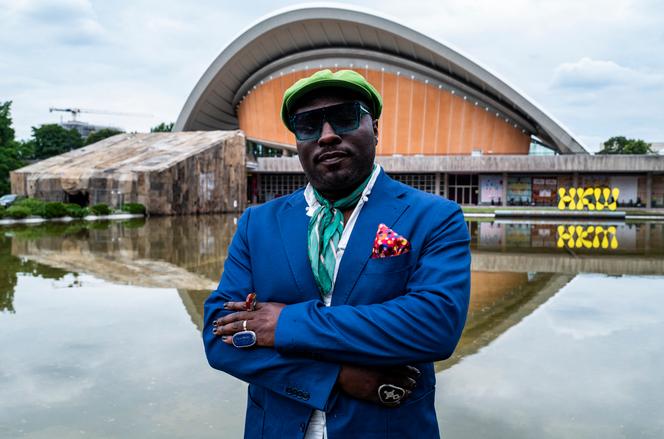


Bonaventure Soh Bejeng Ndikung, the new director of the House of World Cultures (HKW) since January 1, reopened the Berlin art center this summer. The 46-year-old Cameroonian, who was previously head of the independent Savvy Center, talks about how he is breathing new life into this iconic venue in the Tiergarten district. For him, culture cannot afford to exist without echoing environmental and geopolitical crises.
I was lucky enough to be there at the right time, but only after doing some real work! Savvy was indeed a critique of institutions. My criticism of a place like the House of World Cultures was that it was a bit of a cage, in the sense that it showed "the other." At the time, there were very few exhibitions featuring artists from South America, Asia or Africa. It was always in contexts such as Asia Pacific Week or "Africa Now," meaning that artists were stuck in their geography rather than situated in the contemporary. I didn't want to accept that contemporary art, wherever it comes from in the world, should only be looked at through Western glasses. Creating a place where art and analysis would take center stage, but where we'd also show plural references and points of view, was a reaction and a snub – it had to exist.
The strategy was to weave links between practices and through major research projects, but also to build up an archive. From the outset, we were keen to fund publications to go with the exhibitions, because there was a need to write and create references. We immediately set up a library of books and journals. Generations of thinkers and artists were invisible, due to a lack of accessible archives. Then we started working with other countries, for example through an international program on art and mental health, which took us from a psychiatric center in Venice, Italy, to Essaouira, Morocco, where we focused on the Gnaoua, and then to Lubumbashi, Democratic Republic of Congo, where the Belgians designed a hygienic urbanism.
Yes, from time to time. The former director, Bernd M. Scherer, who stayed for 17 years, was very important because he was able to create a real academic space. For my part, alongside Savvy, I was involved in biannual events. We had dialogues and collaborations, but they were in different languages. We're from different generations, with different biographies. He was a philosopher, I'm a scientist by training, and I'm very interested in poetry and the body. That's why performativity now plays such a big role at the HKW. We have two curators dedicated to performance art, out of some 15 curators covering music, exhibitions, architecture, science and the spoken word. Books are important, but we also need to look for other places of knowledge, and archaeology, the body and sound give us possibilities, as do oral histories – "oraliture," as Patrick Chamoiseau puts it, the art of telling stories.
You have 49.56% of this article left to read. The rest is for subscribers only.
